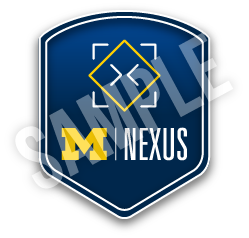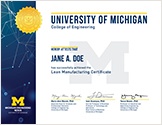PROFESSIONAL EDUCATION CERTIFICATES
Vehicle Electrification
Home » Professional Education » Vehicle Electrification
Key Information
Course Dates
Time Commitment
3 daysNot ready to commit?
Subscribe for email updates on future offerings and get a program brochure.
VEHICLE ELECTRIFICATION
Submit info below and we’ll email you our Vehicle Electrification course brochure.
By submitting this form, you are consenting to receive marketing emails from Nexus. You may unsubscribe at any time.
By clicking 'Get Course Information' you are agreeing to receive emails from Nexus.
Early registrants can take advantage of special discount prices with these codes. On the day you register, enter the appropriate discount code to save.
Sign up:
- between 1/1/24 and 4/9/24 with the code VE20 to save 20%
- between 4/10/24 and 5/8/24 with the code VE15 to save 15%
- between 5/9/24 and 6/10/24 with the code VE10 to save 10%
Click for details.
Improve performance and reduce the cost of electric vehicles.
Learn research-based techniques from a multidisciplinary team at University of Michigan Engineering. Through interactive classroom sessions, you will gain advanced knowledge and learn practical applications in the modeling, design, analysis, and development of hybrid and electric vehicles — with a special focus on electric machines/drives and battery modeling, management, and control.
VEHICLE ELECTRIFICATION
Submit info below and we’ll email you our Vehicle Electrification course brochure.
By submitting this form, you are consenting to receive marketing emails from Nexus. You may unsubscribe at any time.
By clicking 'Get Course Information' you are agreeing to receive emails from Nexus.
LEARNING OBJECTIVES
- Understand the major components of electrified vehicles—principle, current status, technology outlook
- Become familiar with vehicle control hierarchy and power management algorithms
- Practice concepts with an example case study on the control and design of power-split hybrid electric vehicle
- Understand basic operation of electric machines, power electronic inverters, and their control systems
- Compare/contrast performance of different electric machine types
- Understand the main functions of the Battery Management System (BMS)
- Apply electrochemical and equivalent circuit battery modeling techniques
- Evaluate requirements and specifications for battery systems
PROGRAM OVERVIEW
LAPTOP REQUIRED FOR IN-PERSON OFFERINGS
LEARNING SCHEDULE
Mon-Wed 8:30AM – 4:30PM ET
Day 1
- Switchmode Circuit Designs
- Power Electronic Transistors
- Pulse Width Modulation
- Loss, efficiency estimation
- Conduction Losses
- Switching Losses
- Thermal Design
- AC-DC conversion
- Power factor correction
- DC-DC conversion
- Wireless power transfer
- Battery charging profiles
- DC machines
- Permanent magnet
- Field winding
- AC machines
- Permanent magnet machines
- Surface mount permanent magnet machines
- Brushless DC machines
- Interior permanent magnet machines
- Surface mount permanent magnet machines
- Induction machines
- Reluctance machines
- Synchronous reluctance machines
- Switched reluctance machines
- Permanent magnet machines
Day 2
- DC-AC Conversion
- Control of Electric Drives
- Torque regulation in DC Machines
- Torque regulation in AC Machines
- Field-Oriented Control of AC Machines
- Control of Brushless DC Machines
- Field Weakening
- Electrical loss mechanisms
- Conduction losses
- Core losses
- Magnet losses
- Permanent magnet types, properties
- Core materials
- Winding structures
- Concentrated vs. distributed windings
- High-voltage hairpin windings
- Sources of vibration in electric machines and their mitigation
- Rotor dynamics
- Thermal issues
- Cooling (air/oil/glycol)
- Thermal design
- Failure modes
Day 3
- Torque/power density
- Efficiency
- Cost
- Noise vibration harshness (NVH)
- Loss modeling
- Control implementations
- Battery systems overview
- Materials cell construction
- Sensors and connectors
- Thermal considerations
- Safety issues
- Degradation
WHO SHOULD ATTEND
Engineers and managers who are involved in the design and development of hybrid and electric vehicles and/or their key components.
INSTRUCTIONAL TEAM

Al-Thaddeus Avestruz, PhD
- Assistant Professor, Electrical Engineering and Computer Science, College of Engineering

Heath Hofmann, PhD
- Professor, Electrical Engineering and Computer Science, College of Engineering

Jason Siegel, PhD
- Associate Research Scientist, Mechanical Engineering, College of Engineering
What's Next?
CERTIFICATE
Connected & Automated Vehicles
Learn CAV concepts, safety standards, and key challenges.
CERTIFICATE
Dynamics of Heavy Duty Trucks
Learn the foremost research on performance properties and engineering requirements.

